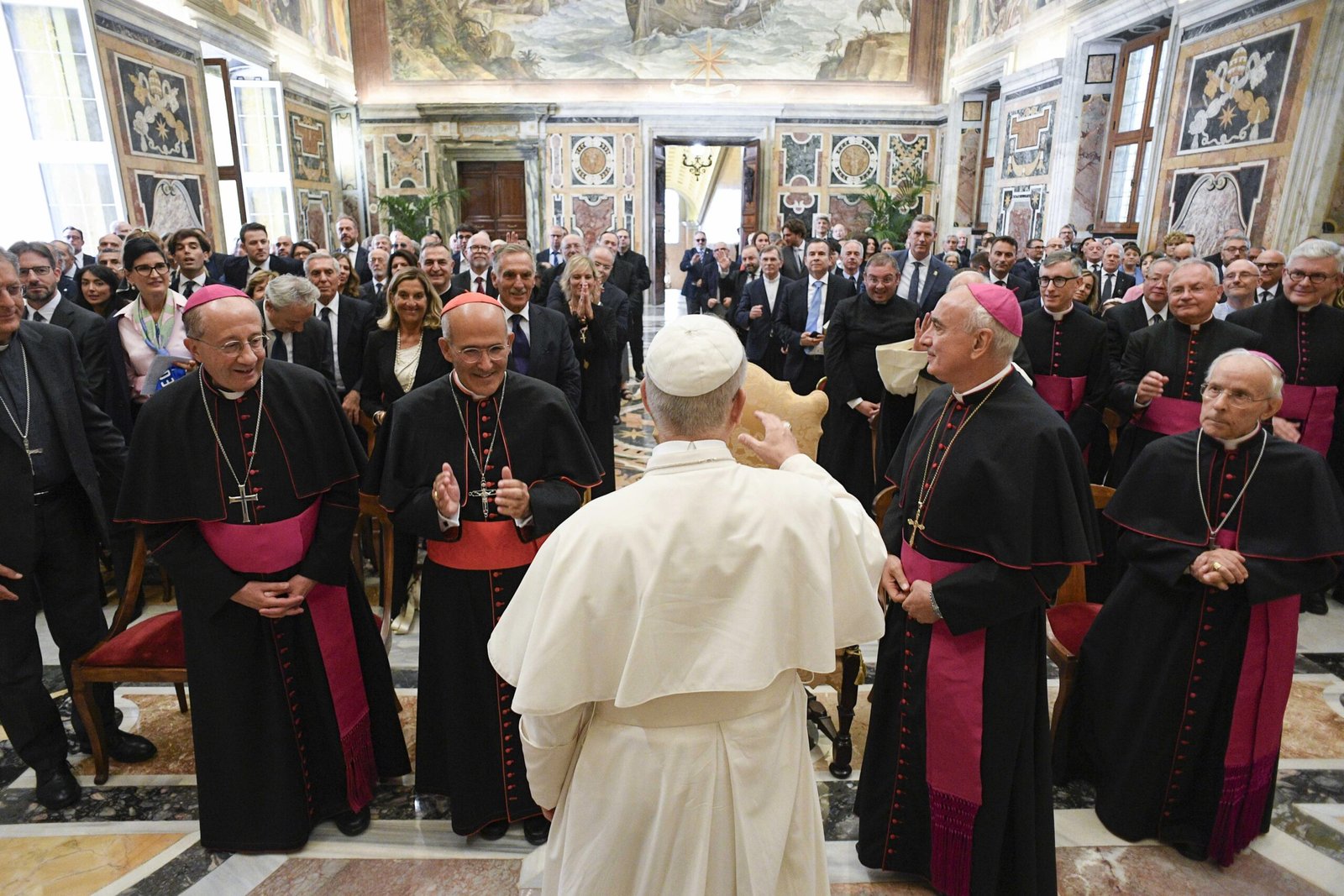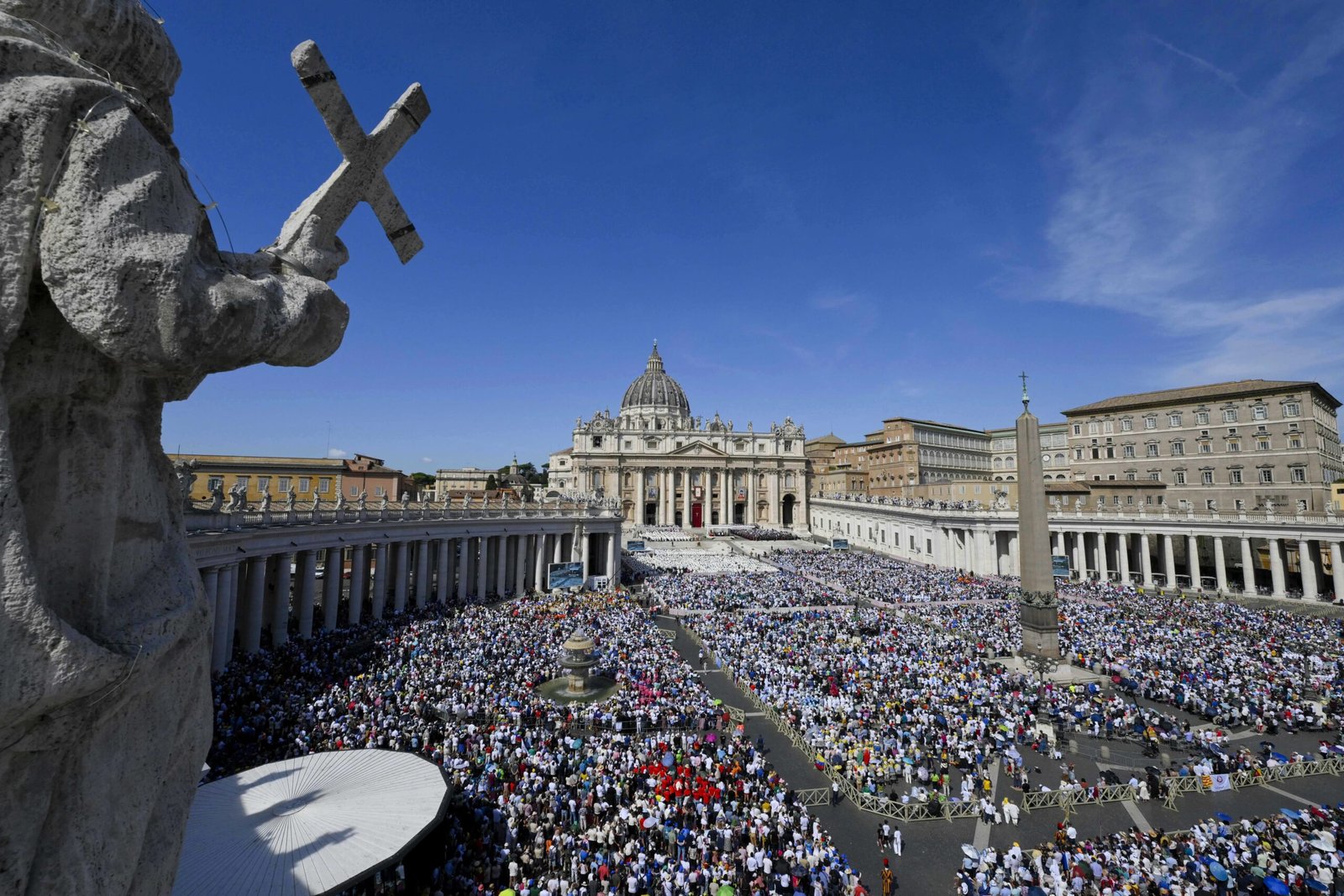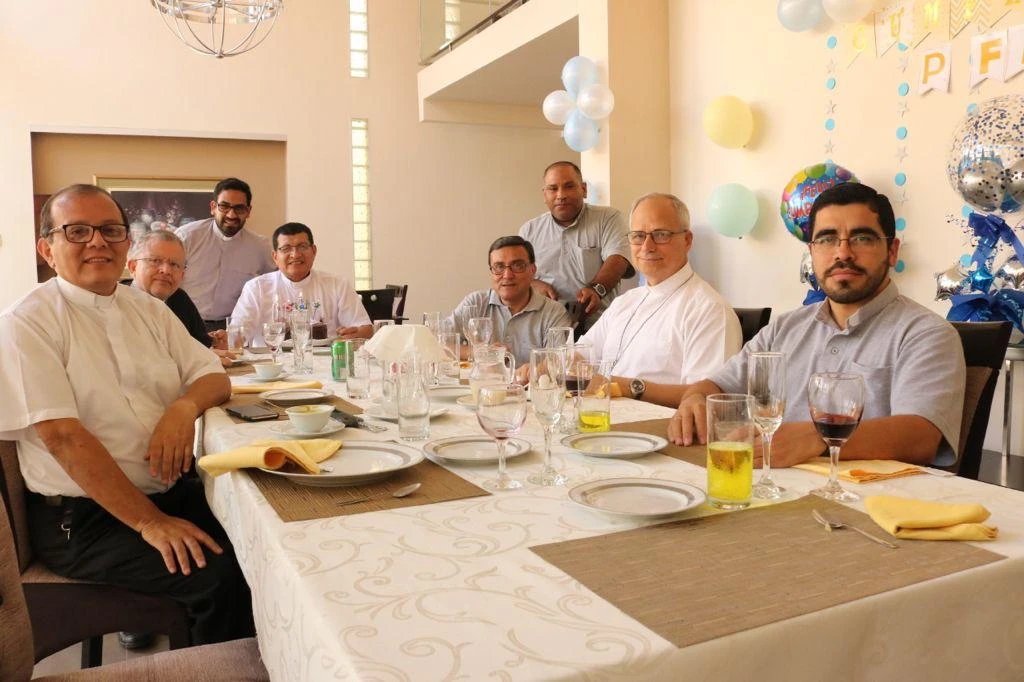Vatican City, Sep 13, 2025 /
12:30 pm
Pope Leo XIV on Saturday urged Catholic theologians to embrace a “theology of wisdom” capable of addressing urgent global challenges, from environmental crises to the ethical questions posed by artificial intelligence (AI).
In his address to participants of an international seminar organized by the Pontifical Academy of Theology, the pope said that “environmental sustainability and the care of creation are essential commitments to ensure the survival of the human race” and have a direct impact on peaceful human coexistence.
Leo emphasized that theology is at the heart of the Church’s missionary work, but must be “incarnate, imbued with the human pains, joys, expectations and hopes of the women and men of our time.” Citing the examples of St. Augustine and St. Thomas Aquinas, he said the great masters of the past modeled a synthesis of faith and reason that can guide theology today.
Turning to contemporary matters, Pope Leo warned that the Church must not limit itself to moral reflections when considering AI. “An exclusively ethical approach to the complex world of artificial intelligence is not enough,” he said, stressing the need for an anthropological vision rooted in human dignity. “What is a human being? What is his or her inherent dignity, which is irreconcilable with a digital android?”
Leo recalled 2023 legislation by his predecessor Pope Francis that reformed the academy, highlighting its three “faces”: academic rigor, contemplative wisdom, and solidarity expressed in acts of charity. Theology, Leo said, should remain rooted in an encounter with Christ while engaging philosophy, science, economics, law, literature, and the arts. Dialogue within the Church must also lead to dialogue with other cultures and religions, so that theology may serve both the Church and the wider world, the pope said.





